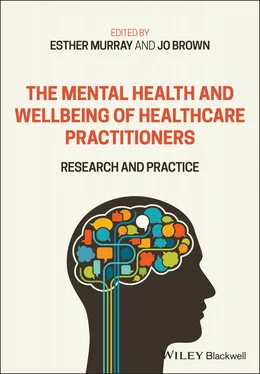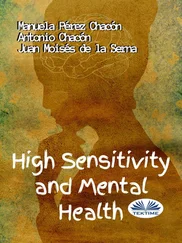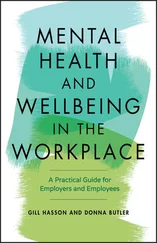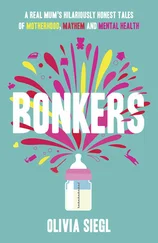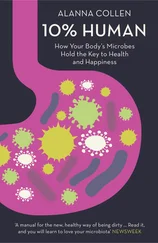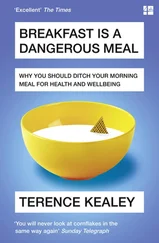The Mental Health and Wellbeing of Healthcare Practitioners
Здесь есть возможность читать онлайн «The Mental Health and Wellbeing of Healthcare Practitioners» — ознакомительный отрывок электронной книги совершенно бесплатно, а после прочтения отрывка купить полную версию. В некоторых случаях можно слушать аудио, скачать через торрент в формате fb2 и присутствует краткое содержание. Жанр: unrecognised, на английском языке. Описание произведения, (предисловие) а так же отзывы посетителей доступны на портале библиотеки ЛибКат.
- Название:The Mental Health and Wellbeing of Healthcare Practitioners
- Автор:
- Жанр:
- Год:неизвестен
- ISBN:нет данных
- Рейтинг книги:3 / 5. Голосов: 1
-
Избранное:Добавить в избранное
- Отзывы:
-
Ваша оценка:
- 60
- 1
- 2
- 3
- 4
- 5
The Mental Health and Wellbeing of Healthcare Practitioners: краткое содержание, описание и аннотация
Предлагаем к чтению аннотацию, описание, краткое содержание или предисловие (зависит от того, что написал сам автор книги «The Mental Health and Wellbeing of Healthcare Practitioners»). Если вы не нашли необходимую информацию о книге — напишите в комментариях, мы постараемся отыскать её.
Explore this innovative new volume covering the growing mental health crisis amongst healthcare practitioners The Mental Health and Wellbeing of Healthcare Practitioners
The Mental Health and Wellbeing of Healthcare Practitioners
The Mental Health and Wellbeing of Healthcare Practitioners — читать онлайн ознакомительный отрывок
Ниже представлен текст книги, разбитый по страницам. Система сохранения места последней прочитанной страницы, позволяет с удобством читать онлайн бесплатно книгу «The Mental Health and Wellbeing of Healthcare Practitioners», без необходимости каждый раз заново искать на чём Вы остановились. Поставьте закладку, и сможете в любой момент перейти на страницу, на которой закончили чтение.
Интервал:
Закладка:
In a special issue on Moral Injury in the Journal of Traumatic Stress, Litz and Kerig also point out that there are important cultural and individual factors to take into consideration with regard to understanding what might be morally injurious to any individual [16]. It is important to recognise a potentially bio‐psycho‐social‐spiritual aspect to the practice of medicine, especially when healthcare practitioners work in teams, often in under‐resourced settings and with little time or space to debrief, or benefit from peer support. Given the explosion of research into the psychosocial distress experienced by healthcare professionals and the urgent need to both explore and map the extent of the problem and to address the causes and consider the remedies, now may be the time to review and clarify the terms we might find useful to do that. In Canada, at the Canadian Institute for Public Safety Research and Treatment, the term ‘Post‐Traumatic Stress Injury’ ( www.cipsrt‐icrtsp.ca) is preferred to PTSD because it recognises that the harms resulting from exposure to traumatic events may manifest as very significant symptoms but that these might not meet the diagnostic criteria for PTSD; equally to talk of injury rather than disorder calls to mind physical injuries, which can help remove some of the stigma which is often attached to mental health conditions. It is not unusual for workplace injuries to occur in medicine, and models like this one suggest that psychological or psychosocial injuries are as usual as needle sticks or injuries resulting from manual handling. Nor is it necessarily ‘disordered’ to experience strong and lasting psychological difficulty from traumatic situations.
Understanding the psychological harms of the workplace through a social psychological lens means that moral injury can be understood as happening to an individual but affecting the team, and the shared meanings in teams and work settings. It is important to remember that in many areas of medicine there is no long tradition of debriefing, or formal peer support whether after major incidents or even relatively routine incidents. Older physicians often talk to me about the erosion of safe spaces such as the doctors' mess, where cases could be discussed without fear of being overheard. Shift patterns have changed in many services now, resulting in long, 12‐hour shifts with short handovers, there is increased lone working in pre‐hospital care so that opportunities for peer support and rapid, informal, and timely debrief are eroded. There is no equivocation in the literature around these various topics; social support is extremely useful in mitigating the psychosocial impact of working in healthcare ([17], for example).
In Shay's initial understanding of moral injury, he discusses the role of leadership, how bad decisions by leaders left subordinates at risk. In any organisation, the actions of leaders and management affect the staff but as we have seen in the recent novel coronavirus pandemic, these actions can leave staff vulnerable to serious disease, disability and even death. This is probably as stark an example of the role of failures in leadership as that faced by Shay's Vietnam veterans. But even on a more average day, decisions at the highest level leave healthcare professionals vulnerable because of understaffing, inadequate hospital estates, insufficient equipment. The powerful hierarchies which exist in the National Health Service ( NHS ) and the services of allied health professionals often mean that staff have no recourse and feel that they cannot raise concerns in ways that will actually see them addressed. When leaders do not protect and defend the safety of their staff, they leave them emotionally and physically vulnerable. Since the NHS is an organisation which holds a particular place in the hearts of much of the nation, staff members find themselves in a constant position of dissonance. They are called on to provide a service for all but are insufficiently equipped to do so, which results in their being unable to offer a standard of care they can feel proud of and are constantly exhausted by demands they cannot meet. This means that their sense of self is under constant threat because ‘who I am’ and ‘who we are’ is not ‘who we should be’ but nor is it within their gift to change that.
DESCRIPTION
The initial research I undertook, alongside my colleagues Charlotte Krahe and Danë Goodsman explored the questions:
Does the way in which medical students talk about their experiences in emergency medicine and pre‐hospital care resonate with the concept of moral injury?
If social support can be protective, to what degree do students feel they have access to this support and want to use it?
The study was envisaged as an exploratory study, and simply the first of a series across professional groups, exploring the lived experience of providing emergency medicine pre‐hospital care, through the theoretical lens of moral injury. The focus group/interview schedule was adapted for healthcare populations from previous research on moral injury in military populations [18]. I conducted interviews and focus groups with students who were either on the intercalated degree in pre‐hospital care, or involved in the pre‐hospital care programme at the medical school, both of which would mean that they had exposure to traumatic incidents. The students knew me, as they had seen me attend symposia and so on in pre‐hospital care. The students were offered the opportunity to amend transcripts but declined, nor did they take up the opportunity to review the findings. Questions were designed to be minimally distressing for students while exploring moral injurious experiences and symptoms resulting from moral injury, potential protective factors were also explored.
The data was analysed with thematic analysis (Braun and Clarke), through the theoretical lens of moral injury and there were themes which did indeed resonate with the concept of moral injury. Participants spoke of the ways in which the mechanism of injury affected how they felt about the job:
‘it's always the ones with the violent connotations which are the hardest to process afterwards… when it's a violent attack there's an air about it of ‘God, someone else has done this and it's up to us to reverse it’.
Sometimes a lack of resources caused problems:
‘the paramedic had used up all his morphine… I felt so bad for this kid… he was in lots of pain and just basically lying on the floor and we couldn't do anything. I felt bad’.
In line with cognitive processing models, they found the clinical debrief to be useful, whether with a paramedic or physician who had also been on the scene:
‘They know exactly what happened and you can say, well why did we decide to do this…then suddenly there is some kind of scientific underpinning, understanding that helps you process what's happened’.
Equally, they also talked about the need for emotional processing , ‘ Just sit down and understand and go, yeah, that's crap… talk me through it. Get everything out ’ . even when this was hard to do: ‘ You've got to make the effort, I find I have to make the effort. If I'm going to talk about it, I need to talk about it properly ’ .
Interestingly, this population did not talk about failures of leadership, or poor decisions made by leaders, but had unstinting admiration for their seniors and their extensive experience:
‘he (the doctor) was like, okay, let's look for injury patterns because that's quite useful. I just remember thinking, oh my God … Obviously I was feeling a lot more than he was but that's just by virtue of him having – that's his job and that's his life’.
It was not until I started talking to other groups that I began to understand the issues that were arising with leadership, and also, that I had actually begun my exploration of moral injury in healthcare in the wrong place.
Читать дальшеИнтервал:
Закладка:
Похожие книги на «The Mental Health and Wellbeing of Healthcare Practitioners»
Представляем Вашему вниманию похожие книги на «The Mental Health and Wellbeing of Healthcare Practitioners» списком для выбора. Мы отобрали схожую по названию и смыслу литературу в надежде предоставить читателям больше вариантов отыскать новые, интересные, ещё непрочитанные произведения.
Обсуждение, отзывы о книге «The Mental Health and Wellbeing of Healthcare Practitioners» и просто собственные мнения читателей. Оставьте ваши комментарии, напишите, что Вы думаете о произведении, его смысле или главных героях. Укажите что конкретно понравилось, а что нет, и почему Вы так считаете.
